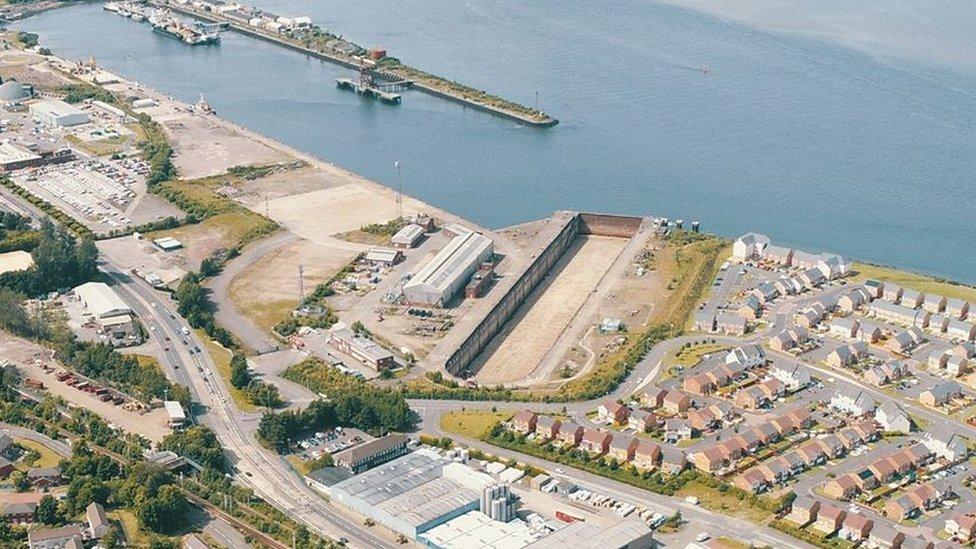Dry dock brought back to use after two decades
- Published

The Inchgreen dry dock is one of largest in the UK
A huge dry dock that has been largely unused for almost 20 years is to become a hub for breaking up marine vessels.
The Inchgreen dock in Greenock, one of the largest in the UK, has been the subject of calls by campaigners to bring it back into use.
A long-term deal has been signed with Atlas Decommissioning, which specialises in the end-of-life disposal of marine infrastructure.
The company said it would create about 100 jobs.
Mike Wood, from Atlas Decommissioning, said: "What we are doing here is essentially shipbuilding in reverse and requires much of the same engineering excellence and expertise."
Atlas, which is based in north-east England, said it had contracts in place with "blue chip" container lines for multiple vessels that they are removing from their current trading fleet.
Mr Wood added: "Inchgreen Dry Dock, as well as its size, also has direct access to very deep water. As a facility for the contracts we have in place I'd go as far as to say it is unique in the UK."
The Inchgreen cranes were demolished in July 2017
The contract is for the lease of the Inchgreen Dry Dock facility and adjacent land, which will become an export hub for recyclable metals.
The Inchgreen dock was where the QE2 was fitted out in the 1960s after its launch from the John Brown shipyard in Clydebank.
But it has been largely unused for decades and its cranes were demolished four years ago.
Campaigners called for a Scottish government strategy to promote and co-ordinate investment in marine industry on the Clyde.
Jim McSporran, from site owners Peel Ports, said Inchgreen Dry Dock was "a jewel in the crown of Scotland" and they were fully committed to bringing it back in full industrial use.
He said: "We have been engaging closely with Inverclyde Council as we worked to secure this contract, which we believe will be a game changer for the area and a sign of more economic benefit to come."
Labour councillor Stephen McCabe, the leader of Inverclyde Council, said it was "a terrific shot in the arm for the Inverclyde economy" and it would breathe new life into a key asset which is of local and national significance.
However, Alba group leader on the council, Jim McEleny, said the dry dock would become the country's "largest scrap yard".
He said the decision could block futures plans to expand operations at neighbouring Ferguson's shipyard in Port Glasgow.